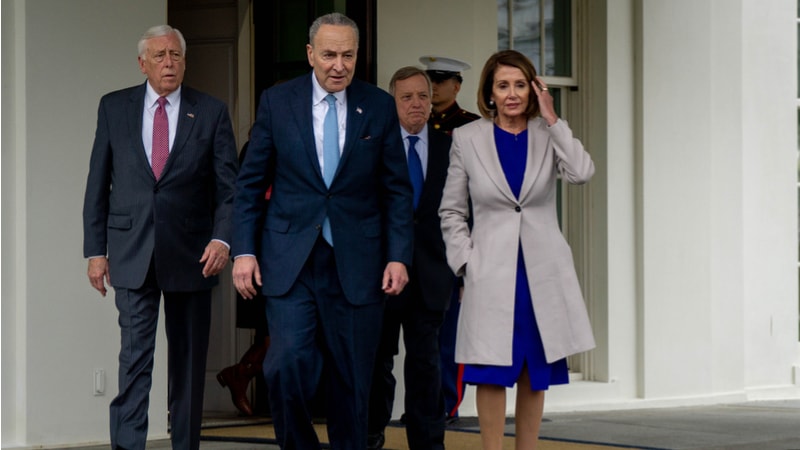
In a party line vote late Tuesday, Senate Democrats voted to kick off the budget reconciliation process, which is the first legislative step toward paving the way for easier passage of President Biden’s $1.9 trillion COVID-19 relief plan.
This vote followed House Speaker Nancy Pelosi, D-Calif., and Senate Majority Leader Chuck Schumer, D-N.Y., introduced the text of a joint 2021 budget resolution on Feb. 1.
That resolution includes instructions for the budget reconciliation process, which is a method for Congress to approve appropriations outside of the normal annual process. Important to prospects for passage of President Biden’s relief plan, appropriations accomplished through reconciliation only need majority approval in the Senate, rather than the 60-vote threshold required for normal appropriations.

The resolution released by the House leaders directs multiple congressional committees to review how much funding falls within their jurisdictions and to work to deliver major components of Biden’s relief plan, such as $1,400 relief checks and broadband investments.
The relief plan described by President Biden last month features a $9 billion funding boost for the Technology Modernization Fund (TMF) – a vehicle for Federal agencies to finance IT modernization projects. It includes another $1.2 billion targeted to the Cybersecurity and Infrastructure Security Agency (CISA), the General Services Administration (GSA), the Federal CISO, and the U.S. Digital Service to fund IT modernization and security efforts.
Detailed legislative language for the relief plan is not yet publicly available to provide more granular details of its Federal IT provisions.
“Congress has a responsibility to quickly deliver immediate comprehensive relief to the American people hurting from COVID-19. The cost of inaction is high and growing, and the time for decisive action is now,” Pelosi and Schumer said in a joint statement.
“With this budget resolution, the Democratic Congress is paving the way for the landmark Biden-Harris coronavirus package that will crush the virus and deliver real relief to families and communities in need. We are hopeful that Republicans will work in a bipartisan manner to support assistance for their communities, but the American people cannot afford any more delays and the Congress must act to prevent more needless suffering,” they continued.
There was an initial delay in the filing of the resolution – on guidance from the White House – as President Biden met with ten GOP senators on an alternative relief plan, but the groundwork for the reconciliation process continued apace. Whips for both parties – Reps. James Clyburn, D-S.C., and Steve Scalise, R-La. – have begun whipping “yes” and “no” votes for their respective parties.
President Biden later expressed support for continuing with the budget resolution and reconciliation process, even as he met on Feb. 1 with Republican senators on their alternative $600 billion relief legislation, according to Press Secretary Jen Psaki.
A total of 11 Senate committees and 13 House panels will now work on the actual language of the reconciliation legislation – the most involved reconciliation process since President Clinton’s budget reconciliation effort utilized 25 committees in 1993, according to Roll Call. The Senate Budget Committee will be charged with reviewing the legislation to see if any of it is considered “extraneous,” and therefore cannot be included in legislation completed through reconciliation.
